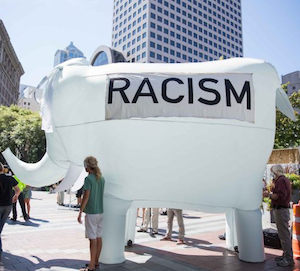In their study White participants completed a survey regarding inequality in the U.S. followed by questions that measured life hardships. The participants who were reminded of racial inequality before completing the survey reported experiencing more life hardships than the group not given the reminder. Denial of personally benefiting from racial privilege is problematic when it comes to supporting policies designed to improve racial equality.
Why did reminders of privilege result in greater claims of hardships when both groups believed equally in general White privilege? Researchers postulated that exposing White participants to evidence of racial privilege was a threat to their sense of self, which was alleviated by emphasizing one’s hardships and consequently merit.
On a positive note, allowing White participants to write about their values before reading about racial inequality affirmed their sense of self, and they reported significantly fewer life hardships and more willingness to acknowledge having personally benefited from racial privilege.
Understanding the motivation to deny personally benefiting from racial privilege offers us the ability to find and use tools to assist Whites in recognizing our personal racial privilege. To garner support from White Americans for policies addressing racial inequalities, we should start by affirming our sense of self and its’ place in the world by emphasizing our cherished values. Recognizing our privilege is a must in letting go of the myth that all of us can be anything that we choose in life and puts us on the path to eliminating societal injustice. Sources: Philips, T. L. & Lowery, B. S. (2015) The hard-knock life? Whites claim hardships in response to racial inequity Journal of Experimental Social Psychology, Vol. 61, pp. 12-18, doi:10.1016/j.jesp.2015.06.008 Photo source: Flickr user Backbone Campaign
